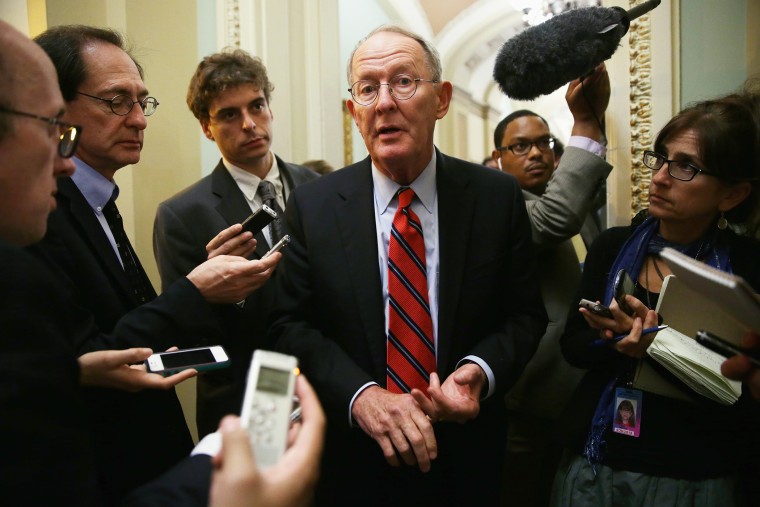The effort hasn't generated much attention, but in recent weeks, there have been meaningful bipartisan negotiations in the Senate on a compromise health care measure. As of late yesterday, however, that measure is now dead -- and it's important to understand why.
The top two members of the Senate Health, Education, Labor, and Pensions Committee (HELP) -- Chairman Lamar Alexander (R-Tenn.) and Ranking Member Patty Murray (D-Wash.) -- have quietly been moving forward on an important bill, acting like you'd expect real senators to act. They've held real hearings, listened to real testimony, and have tried to find a real solution that both parties could live with. The emerging agreement was fairly narrow, but senators like John McCain (R-Ariz.) have praised the work and urged his colleagues to support it.
That won't happen. Yesterday, as TPM reported, the compromise measure was taken off the table.
Senators who have been working for months on a bipartisan bill to stabilize Obamacare's individual market and take away one of President Trump's ways to sabotage it are throwing in the towel, saying the GOP's last-minute effort to repeal the Affordable Care Act has ruined their chance of passage. [...]The news broke a few hours after House Speaker Paul Ryan (R-WI) and the White House told Senate leaders on Tuesday that they oppose the stabilization bill and want all efforts focused on repeal.
Alexander told reporters, "I know how to get bipartisan results, but I'm not a magician. To get a bipartisan result on this before the end of September would mean I'd have to persuade 10 or 15 of my Republican colleagues, persuade Senator McConnell to put it on the floor, the House to pass it and the president to sign it."
With Republicans opposing the compromise, that window quickly closed. Patty Murray left no doubt that the GOP's repeal crusade was responsible for killing the bipartisan deal.
As a matter of partisan strategy, I suppose this isn't too surprising. Republicans want to destroy the existing system, not make it more stable. So long as there was a bipartisan compromise in the works, McCain and others would see it as a better alternative to the right-wing Graham-Cassidy bill.
So GOP leaders scuttled the deal, narrowed everyone's focus, and left Republicans with a choice between Graham-Cassidy and nothing.
Matt House, spokesman for Senate Minority Leader Chuck Schumer (D-N.Y.) said in a statement last night, "This is not about substance. We gave them many of the things they asked for.... The Republican leadership is so eager to pass Graham-Cassidy that they're scuttling a balanced, bipartisan negotiation." –
In theory, McCain should find this outrageous. He'd just endorsed the Alexander-Murray compromise, only to have his own party's leadership kill it, hoping McCain will betray his own principles.
Whether the Arizonan will simply go along with his party's gambit anyway isn't yet clear.
